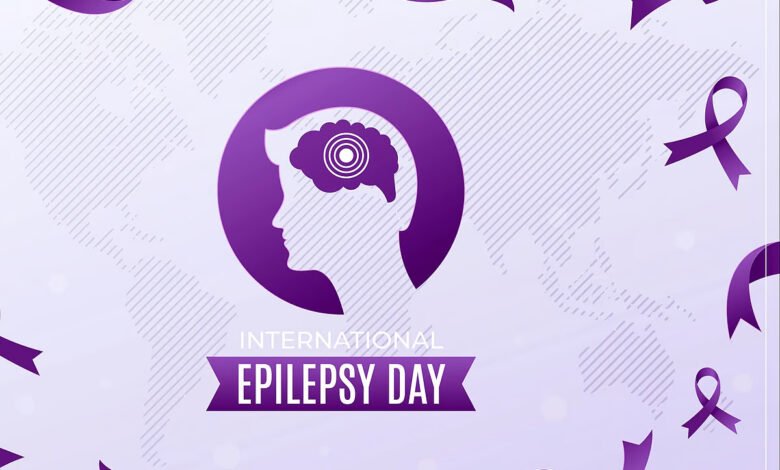International Epilepsy Day: Advocating for Better Care and Support

International Epilepsy Day is a global event observed annually on the second Monday in February since 2015. The goal is to unite individuals with epilepsy and foster a community where awareness, diagnosis, and treatment are shared.
It is also a day to debunk myths and advocate for better medical and social support for those affected. This year, the International Epilepsy Day is Monday, February 10, 2025.
Epilepsy has been associated with social stigma, misinformation, and fear; and the quality of life for those who have the illness is impacted by this stigma, which persists in many nations today. This day therefore promotes understanding, reduces stigma, and encourages policies to improve healthcare for epilepsy patients.
What is Epilepsy?
Epilepsy is a common medical disorder that has an emotional and psychological impact on both sufferers and caretakers.
According to the World Health Organisation, about 50 million people worldwide have epilepsy, making it one of the most common neurological diseases globally.
The defining feature of epilepsy is recurrent seizures, which are short bursts of uncontrollable movement that can affect a portion or the whole body. There is also a loss of consciousness and control over bladder or bowel movements.
Causes of Epilepsy
These are some of the causes of epilepsy.
- Brain damage from prenatal complications as a result of oxygen loss, birth trauma, and low birth weight
- Congenital abnormalities or genetic conditions linked to brain malformations
- Severe head injury
- Stroke
- Brain infections such as meningitis, encephalitis, and neurocysticercosis
- Certain genetic syndromes
- Brain tumors
Signs and Symptoms of Epilepsy
1. Loss of awareness or consciousness
A person may become unresponsive or unaware of their surroundings during a seizure.
2. Seizures
Uncontrolled electrical activity in the brain can cause different types of seizures, ranging from mild staring spells to full-body convulsions.
3. Disturbances in movement
Some seizures can cause uncontrolled jerking, stiffening, or loss of muscle control, leading to sudden falls.
4. Sensory disturbances
Seizures can affect the senses, causing visual flashes, distorted sounds, or changes in taste.
5. Mood changes
People with epilepsy may experience sudden mood changes, anxiety, or depression.
6. Cognitive disturbances
This includes having memory problems, difficulty speaking, or being confused. The individual may experience this before, during, or after a seizure.
7. Increased risk of physical injuries
People who suffer from epilepsy experience seizures as a result, they can fall and sustain bruises, fractures, or other injuries.
8. Potentially life-threatening complications
In some cases, seizures can lead to serious risks like drowning, burns, or prolonged seizures, leading to medical emergencies.
Precautions For Epilepsy
These precautions can help manage the condition and reduce seizure occurrences:
- Avoiding triggers: Find out what triggers the seizures and avoid them.
- Regular medical check-ups: Maintain a health medical routine check.
- Healthy lifestyle: Maintain a healthy lifestyle like eating a balanced diet, getting adequate sleep, exercise regularly.
- Safety measures
- Avoid areas like fire and pool if unaccompanied
The Care Children with Epilepsy Need
Children who have epilepsy need specialized care which is necessary for their overall well-being. These include:
- Education: Children with epilepsy need specialized teachers who are well-trained so that they can provide adequate care and accommodate their learning needs.
- Emotional support: Open discussion about epilepsy is encouraged both at home and school so that these children will feel confident and included.
- Medical care: There is a need for regular medical checks for children who have epilepsy.
- Seizure response training: Everyone around the child such as parents, caregivers, and teachers should be trained in proper first-aid in case of a seizure.
- Encouragement and normalcy: Children with epilepsy should live their lives just like other children. They should be encouraged to participate in activities with their peers so long as a safety precaution is in place.
The Need to Stop Stigmatisation
Stigmatization is a great challenge that people with epilepsy face. This is due to cultural beliefs or even misinformation which people have held on for years. Some cultures or societies still believe that epilepsy is contagious or caused by a supernational factor, which is the reason for their discrimination.
When stigmatized, patients will not seek medical care. That is why there is a need for awareness and education about epilepsy to eliminate stigma. This way there will be inclusion for those living with epilepsy.
Conclusion
International Epilepsy Day helps in spreading awareness, advocating for better healthcare, and fighting stigma. With over 50 million people affected worldwide, efforts must be made to ensure access to medical treatment, proper education, and supportive environments for epilepsy patients.
By understanding the condition, promoting inclusivity, and encouraging global support, we can improve the lives of individuals with epilepsy.
Image Source: http://www.bing.com





